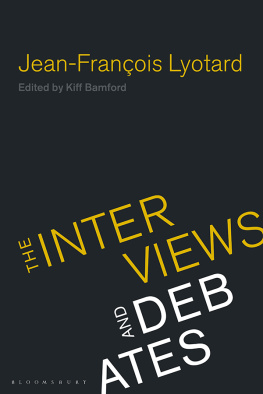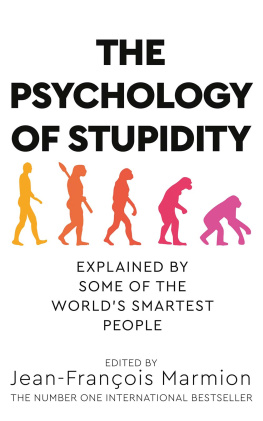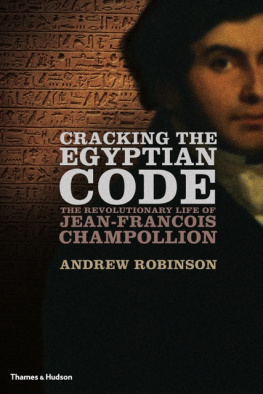Jean-Francois Lyotard - Why Philosophize
Here you can read online Jean-Francois Lyotard - Why Philosophize full text of the book (entire story) in english for free. Download pdf and epub, get meaning, cover and reviews about this ebook. publisher: Polity, genre: Religion. Description of the work, (preface) as well as reviews are available. Best literature library LitArk.com created for fans of good reading and offers a wide selection of genres:
Romance novel
Science fiction
Adventure
Detective
Science
History
Home and family
Prose
Art
Politics
Computer
Non-fiction
Religion
Business
Children
Humor
Choose a favorite category and find really read worthwhile books. Enjoy immersion in the world of imagination, feel the emotions of the characters or learn something new for yourself, make an fascinating discovery.

- Book:Why Philosophize
- Author:
- Publisher:Polity
- Genre:
- Rating:4 / 5
- Favourites:Add to favourites
- Your mark:
- 80
- 1
- 2
- 3
- 4
- 5
Why Philosophize: summary, description and annotation
We offer to read an annotation, description, summary or preface (depends on what the author of the book "Why Philosophize" wrote himself). If you haven't found the necessary information about the book — write in the comments, we will try to find it.
Why Philosophize — read online for free the complete book (whole text) full work
Below is the text of the book, divided by pages. System saving the place of the last page read, allows you to conveniently read the book "Why Philosophize" online for free, without having to search again every time where you left off. Put a bookmark, and you can go to the page where you finished reading at any time.
Font size:
Interval:
Bookmark:
Centre National du Livre
Published with the assistance of the French Ministry of Culture National
Centre for the Book
65 Bridge Street
Cambridge CB2 1UR, UK
350 Main Street
Malden, MA 02148, USA
The publisher wishes to thank Dolors Lyotard and Corinne Enaudeau, as well as the team of the Bibliothque littraire Jacques Doucet (especially Marie-Dominique Nobcourt Mutarelli, the Head Librarian), for their generous help in preparing this edition. Corinne Enaudeau teaches philosophy to khgne and hypokhgne classes at the Janson de Sailly and Henri IV lyces in Paris.
The translation follows a typed text preserved at the Bibliothque littraire Jacques Doucet (shelf mark JFL 291/2). This constitutes the second manuscript version of the lectures given by Jean-Franois Lyotard soon after they had been written. The Bibliothque Doucet also preserves (shelf mark JFL 291/1) a first typewritten version of the same text but one that is heavily annotated by Lyotard himself. All these annotations have been carried over, without modification or alteration, into the second typescript, so it has not been thought useful to point out the differences between the two versions. On the other hand, a few minor corrections have been made when they turned out to be necessary (punctuation mistakes, quotation marks missing); likewise, the quotations indicated by abbreviated references in the original text have been re-established. No notes have been added, so as to leave the oral character of these lectures intact.
Corinne Enaudeau
Philosophy does not desire wisdom or knowledge; it teaches us neither what is true nor how to behave. People will say that it wears itself out wondering what it is and what is in a solitude that disturbs nobody. At best, it might sometimes offer us an idea useful for the production of wealth or the dream of a completely different social system or the metaphysical opium of consolation. Philosophers, it would seem, are those crazy chatterboxes whom history carts along with it throughout its history, without profit but without any great loss either. They may well interpret the world, but they stay standing at its door and will never change it. So their discourse may be interrupted, may return to silence, without the face of the world being changed. After all, their discourse has, in the final analysis, a single thread: a strange attachment to loss, the desire not to lose the loss that undermines all human activity and separates it from itself, the desire not to let go of the lack whose dagger death sticks into life. So, in 2012, we may well ask, as Jean-Franois Lyotard asked in 1964: why philosophize? What reason was there, is there still, to philosophize, to plunge back down into the depths of the gaps in meaning each time anew, in a re-found naivety that will be judged childish? Put this way, the question may appear rhetorical. It is self-referential, since its utterance actually gives the answer to the question uttered, for we have already started philosophizing when we wonder whether its worth the trouble to do so all over again. But it is the lot of language itself, which has to speak so as to worry about its own interruption; it is the lot of wakefulness and life, which must deny in practice the sleep and death that they are investigating. Since we speak, act and live under the threat of loss, we wont emerge from this circle where absence makes itself present and presence is hollowed out by absence. For it is not easy to be a dumb beast, Lyotard tells us, we cannot stun ourselves with a wordless given, a perfect plenitude, a dreamless night. So we will philosophize for the simple reason that we cannot avoid doing so: attest to the presence of lack by our speech.
The man who died in 1998, leaving The Confession of Augustine unfinished, was perhaps preoccupied by nothing other than this constitutive incompleteness of meaning, which is the knife and the wound of thought, its burning sore and its viaticum. Discourse, figure declared that it refused to conclude, The Differend interrupted its succession of paragraphs with a few abrupt items on history. Each of Lyotards books brings a certain disjunction into its object, into its writing, into the gap between it and the other books. His conviction, as early as 1964, was that you can be inoculated with a grain of philosophy only if you let yourself be haunted by absence and find the paradoxical energy to contaminate others with it, to tell them about the law of debt, the debit that can never be paid off. His work enabled this grain to spread and grow, but in Lyotard it was accompanied by a vigorous engagement with teaching, and a political commitment in which questioning, professing, and leading the life of an activist went inseparably together. Attention to the flaw to the lack of substantiality as much as of meaning already presupposes that it is other people, even more than things, who make holes in language; that it is through others that unity is lacking in the social totality, through them that opposition comes to split open the unity of meaning. Without them being there to muddle arguments, thwart actions, disappoint passions, lack would never come to the real to turn it into a human world, and this world would not call on speech to reflect its lack, to philosophize. If, however, it is simply a matter of filling an empty space, philosophy can easily build a non-human world in it, a harmonious metaphysical dream. It then encloses itself within an absolute Logos, the mirage of an invisible Whole that paradoxically remains separate from what it unites. Ideology is simply this, says Lyotard a system of ideas that is all the more easy to profess in that it is autonomous, has sublimated the lack from which it has sprung, and speaks elsewhere, beyond. This is true of all metaphysics, but also of all theory, even if it calls itself Marxist, which attempts to fill needy minds with its overflow of system. To cut oneself away from practice doesnt mean talking about substance instead of working for revolution, it means turning both of them into the solution, maintaining that the end is in the beginning, that meaning has always belonged to itself, that it knows where it is and where it is going. For the voice that utters this meaning can no longer capture any of the silent disunions in which, however, this meaning seeks itself. To profess at least to profess philosophy, not faith or science is nothing without the questions that we ask ourselves and ask others, without this shared commerce of lack in which a paradoxical power of passivity (a recurrent theme in Lyotards whole work) is exercised, the power to allow the world to come into speech, to allow ourselves to be told what is lacking in the real for it to be a picture, and what is lacking in the picture for it to be real.
Font size:
Interval:
Bookmark:
Similar books «Why Philosophize»
Look at similar books to Why Philosophize. We have selected literature similar in name and meaning in the hope of providing readers with more options to find new, interesting, not yet read works.
Discussion, reviews of the book Why Philosophize and just readers' own opinions. Leave your comments, write what you think about the work, its meaning or the main characters. Specify what exactly you liked and what you didn't like, and why you think so.






